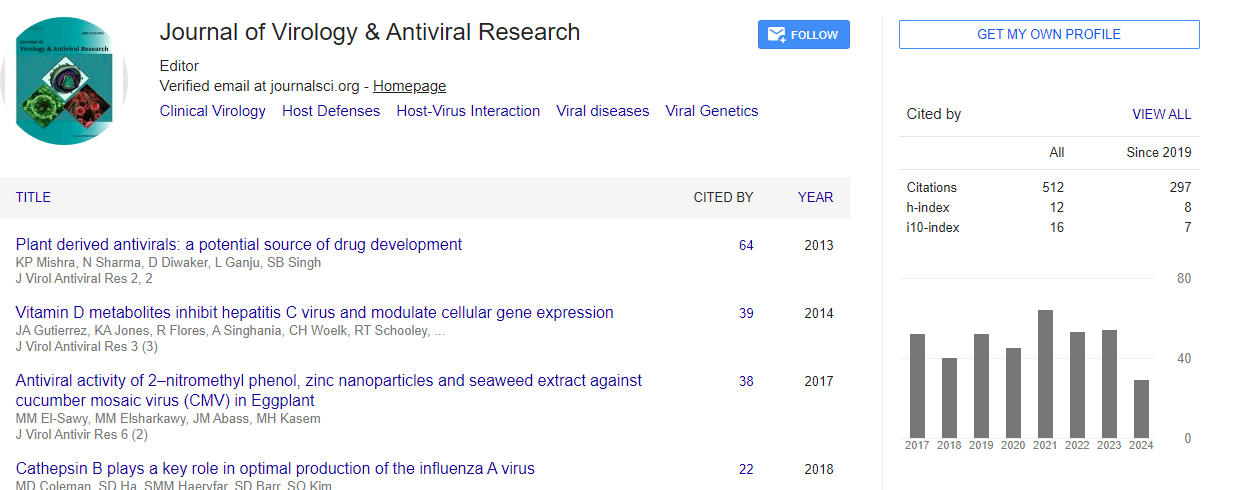Influenza A virus capsid disassembly: How a hard nut cracks itself during cellular entry
Indranil Banerjee
Indian Institute of Science Education and Research, India
: J Virol Antivir Res
Abstract
Viruses are masters of camouflage and deception despite being extremely simple in structure and composition. Devoid of any means of independent locomotion, they disseminate by exploiting cells and organisms. A critical moment occurs when a virus particle reaches a potential host cell and attaches itself to the surface. It must now deliver its genome and accessory proteins into the host cell for replication. Unable to gain access to the cell on their own, viruses have evolved elegant strategies to extract assistance form the host cell for their entry and genome release. Influenza virus, one of the most devastating human pathogens, uses a unique trick to get its capsid unpacked within the host cell. It mimics misfolded protein aggregates by carrying unanchored ubiquitin chains, and thereby activates the ubiquitin- and HDAC6-dependent protein degradation machinery (aggresome) of the cell. Upon activation, diverse components of the aggresome processing machinery including the microtubule- and actin-associated molecular motors dynein, dynactin and myosin 10, generate physical forces to crack open the viral capsid and release the viral RNA genome into the cytosol for replication. This cytoskeleton motor-assisted capsid disassembly program not only provides yet another interesting insight on how viruses manipulate the host cells to propagate, but also offers potential targets such as myosin 10, dynein and HDAC6 for new antiviral strategies to combat this deadly virus.
Biography
Indranil Banerjee is currently working as an Assistant Professor at IISER Mohali, India. He has completed his PhD from Institute of Biochemistry, Swiss Federal Institute of Technology (ETH Zurich), Switzerland an his Post doctoral Fellow at Friedrich Miescher Institute (FMI Basel) and Novartis Institutes for Biomedical Research (NIBR), Switzerland. In 2016 he won Pfizer prize for his research in immunology and infectious diseases. He published many papers in reputed journals and his area of research includes understanding the core of influenza and dengue viruses and their treatment.
E-mail: indranil@iisermohali.ac.in
 Spanish
Spanish  Chinese
Chinese  Russian
Russian  German
German  French
French  Japanese
Japanese  Portuguese
Portuguese  Hindi
Hindi 

